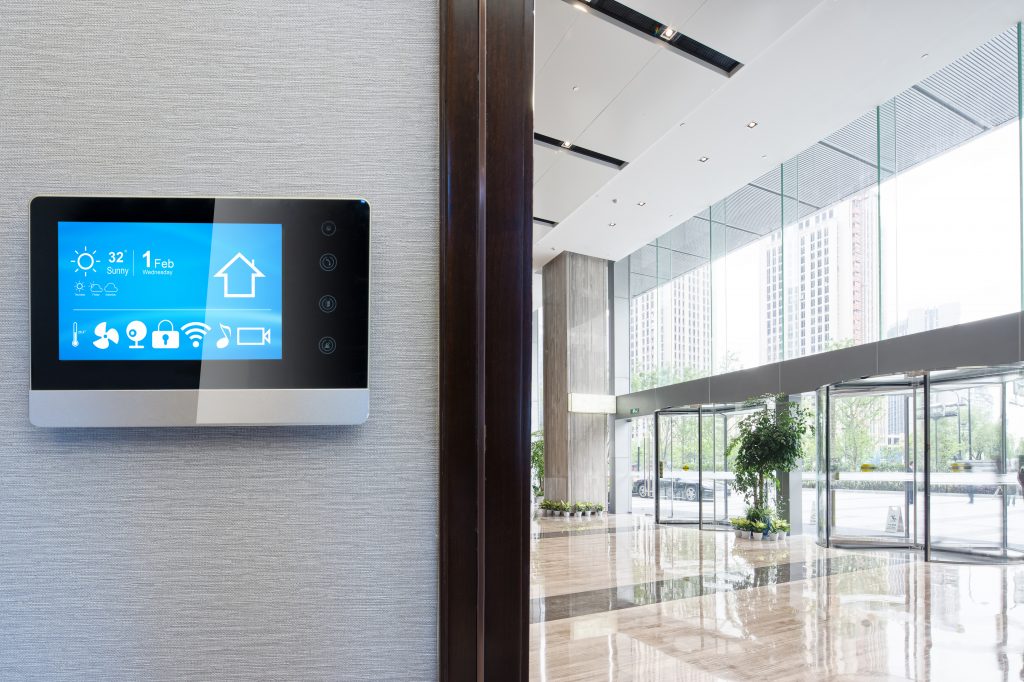Wireless, Install Anywhere Mini Sensor Released
UK electronics manufacturer, Pressac Communications, has released a new range of mini, wireless, low energy sensors for monitoring temperature, humidity, dry contact and...
Read Full Article
There are few issues that divide the occupants of an office more than its temperature - so how can smart sensors help you overcome them?
As the mercury rises outside, so do the number of arguments about the air-conditioning, with someone always too hot or too cold. High temperatures can also have an impact on productivity and motivation.
Keeping everyone happy is tricky but there are things you can do. Smart sensor technology, connected to the Internet of Things (IoT) can help you see accurate, real-time, data from across your estate at the touch of a button, enabling changes to be made quickly – and improving energy efficiency.
What is the maximum temperature for an office?
There is no legal maximum office temperature in the UK. Guidance from the Health and Safety Executive says that workplaces should aim to be no cooler than 16C, or 13C if much of the work involves rigorous effort but there is no guidance for top temperature. This is due to the very high temperatures that can be found in workplaces such as kitchens and foundries, where it would not be reasonable, or possible, to expect them to be cool.
The HSE website also states that ‘thermal comfort’ is about more than just the ambient temperature in the room and that employers should also look at other factors including humidity, radiant temperature from any equipment in the room and air velocity.
How hot does an office have to be before an employee can complain?
Whilst there is no specific temperature set out in law, the Workplace (Health, Safety and Welfare) Regulations 1992 state that the temperature in any workplace must be reasonable. This is open to interpretation but if significant numbers of staff are complaining about the temperature it is the duty of an employer to look at rectifying the problem.
The TUC have called for regulations to be changed so that people can stop working if their office reaches a maximum temperature of 30C, and advised that employers should aim to keep workplace temperatures lower than 24C.
How can smart technology help with workplace temperature control?
Many workplaces will have some kind of air-conditioning system in place to help keep temperatures under control but often these operate in isolation, with individual users often able to turn temperature controls up and down multiple times throughout the day.
Smart technology enables a more efficient approach to office comfort. Using individual sensors to monitor not just temperature but the other important indicators defined by the HSE such as humidity and CO2 levels, means facilities managers can see real-time information from across their entire estate and make instant changes accordingly.
Smart sensors are small devices that can be attached to walls, ceilings, doors, windows or machines. They are part of the IoT and send information on a range of climate indicators directly to cloud-based systems such as IBM Watson or Microsoft Azure, giving an instant overview of the situation and enabling you to see areas that are too hot or too cool or that have high humidity levels.
Using these sensors can help to not only control things such as air conditioning but also monitor which times of the day areas are becoming too hot, enabling simple steps to be taken such as keeping blinds closed in the morning or moving desks away from warmer areas of the workspace.
What's available?
Sensors such as CT clamps – which affix to cables and measure the AC current flowing through them – can also be useful to help spot issues such as overheating machinery or faulty equipment, which can all contribute to increasing the temperature of a workspace.
Whichever sensors you choose you will benefit from instant, accurate data, which means changes can be made quickly, reducing the likelihood of staff suffering adverse effects from heat and increasing their comfort and satisfaction in the workplace.
This article was provided by Pressac, a company providing a range of sensors which can help to make workplaces more comfortable.
Article written by Brian Shillibeer | Published 26 July 2019
UK electronics manufacturer, Pressac Communications, has released a new range of mini, wireless, low energy sensors for monitoring temperature, humidity, dry contact and...
Read Full ArticleUnlock the full potential of IoT in your facilities with these five expert tips, ensuring efficiency, cost-effectiveness, and enhanced management capabilities. In this...
Read Full ArticleEmma Mahy summarises the main findings of the final analysis of the Regulator of Social Housing’s report into damp and mould in social housing Released on 28...
Read Full ArticleData-driven facilities management is now the expected norm, but security concerns about IoT systems still remain amongst FMs and tenants. The Internet of Things (IoT)...
Read Full ArticleThe operational technology that powers connected devices across building systems is providing more entry points for cyber criminals to exploit, says research and advisory...
Read Full ArticleAsda has launched an innovative project at its Stevenage tech store as part of a series of trials in partnership with Hark and SeeChange. The project includes the use...
Read Full ArticleMorgan Sindall Property Services is to use a machine learning platform to provide social housing landlords and tenants with real-time insights to help them ensure...
Read Full ArticleOffice occupancy has reached its highest level since March 2020 in the first weeks of September. Using IoT sensors to track occupancy levels, new data released by...
Read Full ArticleDisruptive Technologies, the creator of the world’s smallest wireless sensors, has been named the Property Tech Company of the Year at the Global Business Tech...
Read Full ArticlePropTech company WeMaintain has signed a contract with KeolisAmey Docklands to supply smart maintenance solutions to all London Docklands Light Railway stations. The...
Read Full Article